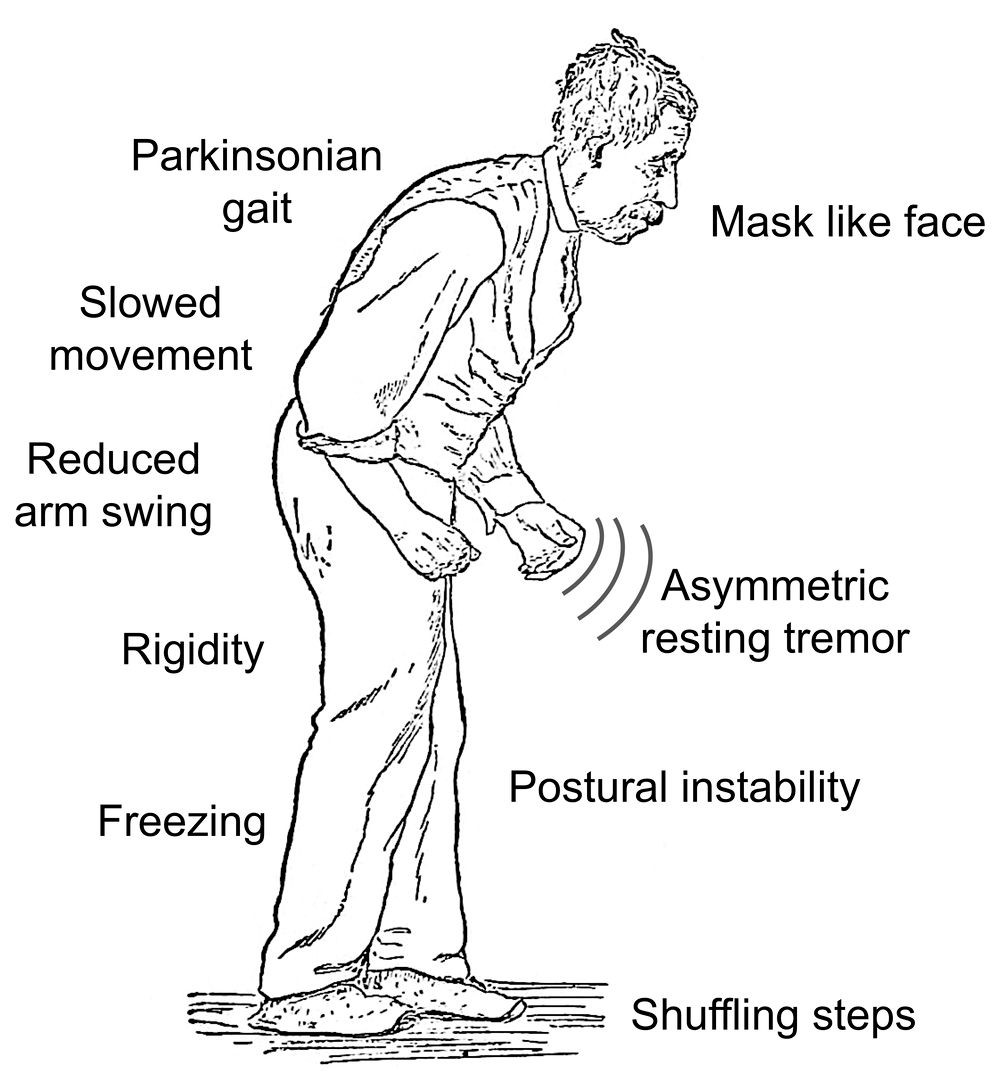
Contents
- 1 Parkinson’s Disease Quiz: Test Your Medical IQ
- 1.1 Parkinson’s Disease isn’t just seen in advanced age.
- 1.2 Parkinson’s Disease is a movement disorder.
- 1.3 What does the body’s nervous system control?
- 1.4 Severe headaches are not a main symptom of Parkinson’s Disease.
- 1.5 What causes Parkinson’s Disease?
- 1.6 There are no laboratory tests to diagnose Parkinson’s Disease.
- 1.7 How many stages of Parkinson’s Disease are there?
- 1.8 Dementia is often associated with the later stages of Parkinson’s Disease.
- 1.9 What are Lewy bodies?
- 1.10 Who is more likely to develop Parkinson’s Disease?
- 1.11 Parkinson’s Disease cannot be prevented.
Parkinson’s Disease Quiz: Test Your Medical IQ
Parkinson’s Disease isn’t just seen in advanced age.
Parkinson’s Disease (PD) can begin in people as young as age 40, although it does tend to affect people over age 60 more often.
The progression of PD varies, but those who develop it at earlier ages tend to have a more severe progression. While the life expectancy for people with Parkinson’s Disease is about the same as the average population, complications in the later stages can lead to fatal outcomes from choking, pneumonia, and falling.
True False
Parkinson’s Disease is a movement disorder.
Parkinson’s Disease (PD) is a degenerative and chronic movement disorder. Symptoms continue and generally worsen over time. The National Institute of Neurological Disorders and Stroke (NINDS) estimates that about 50,000 people are diagnosed with PD each year in the U.S. The cause of PD is unknown, and there is currently no cure. However, there are several treatment options available to manage symptoms, including medications and surgery.
True False
What does the body’s nervous system control?
The body’s central nervous system (CNS) controls the five senses. It consists of the brain and spinal cord, which interpret our external environment, house our thoughts and ideas, and control our body movements. The CNS acts as a central computer, interpreting information from our eyes, ears, nose, tongue, and skin, as well as other sensations from internal organs like the stomach.
The spinal cord connects the body to the brain and transmits the signals received from the body to the brain for interpretation. An injury to the spinal cord disrupts this communication.
The five senses Body weight Body temperature All of the above
Severe headaches are not a main symptom of Parkinson’s Disease.
Common symptoms of Parkinson’s Disease (PD) include resting tremor, slow movement (bradykinesia), rigidity, and difficulty balancing when standing (postural instability). PD has other secondary motor and non-motor symptoms that vary in each person, and the progression of the disease differs as well. The presence of tremor may vary among individuals, with some experiencing it as a primary symptom and others not having it but having postural instability.
True False
What causes Parkinson’s Disease?
Parkinson’s Disease is caused by the loss of the brain chemical dopamine. When neurons in the brain area responsible for movement become impaired or die, the production of dopamine decreases. This loss of dopamine results in the movement problems seen in PD patients.
A severe blood infection Loss of the brain chemical dopamine Stroke Depression
There are no laboratory tests to diagnose Parkinson’s Disease.
Currently, there are no laboratory tests available for diagnosing Parkinson’s Disease. This lack of definitive tests makes accurate diagnosis challenging, as PD can resemble other movement disorders.
Physicians rely on a complete medical history and neurological examination to diagnose PD. Additional tests may be conducted to rule out other neurological conditions that mimic Parkinson’s.
True False
How many stages of Parkinson’s Disease are there?
Parkinson’s Disease has five stages, as described by the widely used Hoehn and Yahr scale:
- Stage one: Tremors or shaking on one side of the body
- Stage two: Tremors or shaking on one or both sides of the body; possible imbalance
- Stage three: Noticeable balance impairment and slowing of motion
- Stage four: Severe symptoms and disability; patients likely need assistance
- Stage five: Patients may be bedridden or wheelchair-bound and require constant care
Another scale used to describe PD symptoms is the Movement Disorders Society-Unified Parkinson’s Disease Rating Scale (MDS-UPDRS), which measures motor movement, non-motor experiences of daily living, motor examination, and motor complications.
Dementia is often associated with the later stages of Parkinson’s Disease.
Approximately one-quarter to one-third of people with Parkinson’s Disease will develop cognitive difficulties, including problems with memory, judgment, language, reasoning, and other mental skills. In later stages, patients may experience Parkinson’s disease dementia (PDD).
While there is no cure for Parkinson’s-associated dementia, certain medications can help manage the symptoms.
True False
What are Lewy bodies?
Lewy bodies are abnormal protein deposits found in the brain. Their formation and role in Parkinson’s Disease are not yet fully understood, but they appear to be linked to certain types of dementia associated with both PD and Alzheimer’s Disease. Symptoms of Lewy body dementia range from parkinsonian symptoms to those resembling Alzheimer’s, and they can fluctuate from day to day. Hallucinations may occur in later stages.
Protein deposits found in the brain Pockets of air found in the brain Microscopic crystalline matter found in the brain A build-up of salt found in the brain
Who is more likely to develop Parkinson’s Disease?
Parkinson’s Disease affects both men and women, although it is about 50% more common in men. The reasons for this difference are unclear, but theories suggest that estrogen may play a role in reducing the frequency of the disease in women or making it milder when it does occur.
An estimated 50,000 people are diagnosed with Parkinson’s Disease each year in the U.S., although the actual number may be higher due to underdiagnosis. Early PD symptoms are often mistaken for signs of aging, delaying medical attention. The similarity of PD symptoms to those of other diseases further complicates diagnosis, which currently lacks a definitive test.
Parkinson’s Disease cannot be prevented.
At present, there is no known way to predict or prevent Parkinson’s Disease. Research is ongoing to identify biomarkers that could aid in detecting the disease early or understanding its progression. Genetic biomarkers can be tested for in rare cases of inherited PD.
True False
Images provided by:
1. iStockphoto
2. iStockphoto
3. iStockphoto
4. iStockphoto
5. iStockphoto
6. iStockphoto
7. iStockphoto
8. iStockphoto
9. iStockphoto
10. iStockphoto
11. iStockphoto
Wooten, G. Journal of Neurology Neurosurgery and Psychiatry, April 2004; vol 75, pp 637-639.
Parkinson’s Disease Foundation. What is Parkinson’s Disease?
Parkinson’s Disease Foundation, Inc. Parkinson’s Disease Symptoms.
Parkinson’s Disease Foundation, Inc. Predicting Dementia in Early Parkinson’s Disease.
This tool does not provide medical advice. See additional information:
THIS TOOL DOES NOT PROVIDE MEDICAL ADVICE. It is intended for general informational purposes only and does not address individual circumstances. It is not a substitute for professional medical advice, diagnosis, or treatment, and should not be relied upon to make decisions about your health. Never ignore professional medical advice in seeking treatment because of something you have read on the MedicineNet Site. If you think you may have a medical emergency, immediately call your doctor or dial 911.
© 1996-2024 MedicineNet, Inc. All rights reserved.


